Our National Infertility Week series continues today. (Did you miss the post from Chris Thomas earlier? If so, stop now and read it here). I'm so glad to introduce you to Maren McLean Persaud, my new favorite Canadian who tells a story of hope, longing and loss. Here are her beautiful words-
_______________
 This past fall, we took all our hope, all our prayer, all our being, and all our money and invested it into the expensive and rigorous fertility treatment known as IVF (in vitro fertilization).
This past fall, we took all our hope, all our prayer, all our being, and all our money and invested it into the expensive and rigorous fertility treatment known as IVF (in vitro fertilization).
We had been trying to have a baby on our own for almost three years only to find out we had around a 1 to 4 percent chance of that ever happening. IVF was our only option if we wanted to have our own child.
If you have had personal experience with IVF, I don’t need to tell you anything and I salute you.
If you have no idea what I’m talking about, IVF is a medical procedure that drains you emotionally, physically, and financially to “retrieve” your eggs and fertilize them with sperm from your partner, or a donor, to create viable embryos that can be put back into you to hopefully achieve a successful pregnancy and live birth.
The process involves a whole lot of needles, drugs, procedures, anxiously waiting for phone calls and embryo updates (spoiler: not all of them make it) and in the end, you might just end up with nothing to show for it.
So we did all that with the confident attitude that it would work, because, why wouldn’t it? We’re young!
And it did work! We got pregnant and even had one little embryo to tuck away in the freezer for a later date. What a great return on our investment.
Three days before Christmas, on our wedding anniversary, we floated into our fertility clinic for the 8-week ultrasound ready to hear the heart beat and successfully “graduate’ from the clinic.
Not even thirty seconds into the ultrasound our doctor said “I don’t have good news”.
After that it’s all a blur, but essentially our embryo was there and had grown, but there was no heartbeat. I would miscarry soon. That night I slept as though I was playing dead. No dreams, no restlessness, just darkness. The next morning, I woke up to myself sobbing, wishing I hadn’t woken up.
‘My God, my God, why have you abandoned me?’
My husband turned into our PR guy, messaging family and friends, letting them know what happened and canceling Advent/Christmas events we had planned to host in our home.
My family rushed in to spend Christmas at our house and they let us be the couch potato, tear-filled slobs we had turned into.
They cooked for us, cleaned for us, looked after us and although we had trouble recognizing it in the moment, brought a lot of light to our darkness.
My husband is a minister and in the days after our ultrasound he had to soldier through services that celebrated a special baby being brought into the world.
Being the bad minister’s wife that I am, I didn’t go to those celebrations with him.
The baby has always been my favorite part of the Christmas story. The fact that God chose to enter our world in that new and hopeful form so full of potential has always filled me with wonder and joy, but not this year.
‘Screw you and screw your baby, God!’
I wasn’t having any of it. How could I hear the ‘good news’ when only days before my Doctor told me there was no good news?
I was literally losing my baby as I rang in the new year.
In the days and weeks that followed I threw myself back into work, almost manically making plans and getting things done.
All the while I was haunted by the exact moment when we heard “I don’t have good news”. I would cry almost every night.
By February every night turned into once a week and by March there was even more space between these “episodes”.
With the Christmas story long behind me I felt like Lent was a good place for me at this point in my life. Focus on the depravity of the human condition while contemplating death on a cross? Yes! Let’s get sad, people!
Lent is coming to an end though and I can feel the tension building in my body as we inch closer to Easter. The Lenten focus on depravity of our sinful nature will turn into celebrating the Love God has for us and death on a cross will turn into resurrection. Ugh.
I’m not pregnant and am still grieving our loss, you expect me to sing Hallelujah soon? I feel like the Grinch, “I must stop Easter from coming, but how?”
Currently, there is hope in the little embryo we have tucked away at the clinic, waiting for us.
There is hope in how even though this experience tried to shred our marriage into tatters, my husband and I have become closer and more tightly knit than before.
There is hope in the stories of infertility and loss that others have personally shared with us; there is hope in that every time I see my psychologist I can honestly tell her I’m doing a “bit better” than last time we spoke.
But ultimately, there is hope because 2000 and some years ago God proved that there is no darkness where God isn’t with us. God will bring all things to a good end, and that is where our hope is.
I will reclaim the doctor's words: “I don’t have good news” and hope that the absence of Good News is not real.
I want to live a beautiful story of hope.
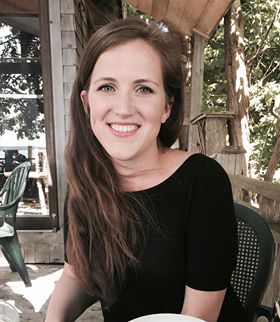 Maren McLean Persaud grew up in Nova Scotia, Canada and pursued her studies in music and theology at Mount Allison University and then Knox College, Toronto School of Theology. Most recently, she worked as Director of Camping Ministry for the Anglican Church in New Brunswick, where she currently lives with her husband, Christian. Prior to that, Maren worked as a ministry student intern in Alberta where she studied the ways that summer camp can teach the wider church to be more creative in community building and spiritual formation. Maren is most passionate about ministry with children and youth and incorporates her experiences in camping and her musical training into that work. She loves spending time outdoors, drinking her coffee black and laughing until she cries.
Maren McLean Persaud grew up in Nova Scotia, Canada and pursued her studies in music and theology at Mount Allison University and then Knox College, Toronto School of Theology. Most recently, she worked as Director of Camping Ministry for the Anglican Church in New Brunswick, where she currently lives with her husband, Christian. Prior to that, Maren worked as a ministry student intern in Alberta where she studied the ways that summer camp can teach the wider church to be more creative in community building and spiritual formation. Maren is most passionate about ministry with children and youth and incorporates her experiences in camping and her musical training into that work. She loves spending time outdoors, drinking her coffee black and laughing until she cries.
**If you are looking for another story of loss, hope and healing check out Birthed: Finding Grace Through Infertility wherever books are sold.***
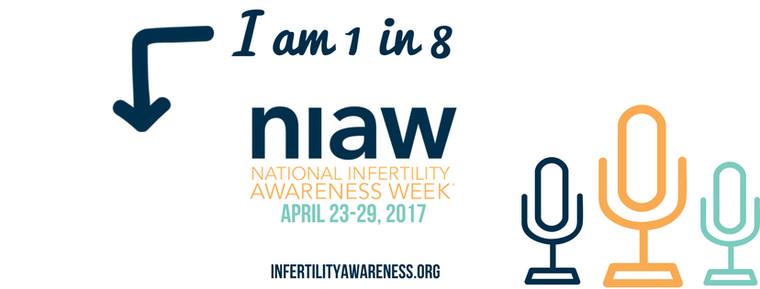
It's National Infertility Awareness week. Welcome to several new readers of Preacher on the Plaza! And I’m happy to use this blog over the next couple of days to give others a platform to share their stories of grief, loss and deferred longing. Even if “infertility” is not your thing and you read my blog for other reasons, I ask you stick with me. Did you read Sarah's and Ronda's stories earlier in the week? Like them, chances are you know someone going through infertility or who has infertility in their story just as I wrote about in Birthed: Finding Grace Through Infertility.
Today, I'm glad to introduce you to my friend, Lara. Though you might see her happy family photo at the bottom of this post, there's so much more to her story. So much imagining, re-imagining and tears that went into building her family as it is today. I was reminded as I read her words that we truly never know what someone is going through (or has been through). I admire her perseverance.
My below the belt troubles started when I was a teen and by 20 I was flatly told that I would never have children.
It is hard, when you are still a child yourself, to really know what infertility means in practical terms but looking back I cannot recall ever feeling “incomplete.”
Yet, I had a niece and nephews that I adored and a good life, full of travel and access to experiences that many people never get to enjoy. I felt strong, secure, and confident with my empty belly. I filled my house with expensive, light-colored furniture and fragile works of art. I bought sexy and impractical shoes. I researched graduate programs, planned exotic vacations and genuinely enjoyed my life. I was the Anti-Mommy.
And then, on a blind date in 2002, I met my husband, Jon. A man born to be a father.
He was a youth mentor, coach, and all around kid-whisperer. All children loved him and it was mutual.
I never hid my issues and told him on our second date, before he even knew my middle name, that I was incapable of carrying a child. When he proposed, I was thrilled to say, “Yes!”, but also unambiguously stated, “All you get is me. But, I’m all yours. Forever.” He said he was okay with this bargain and I believed him.
From where I stood, this was a really good deal. A few weeks after the honeymoon, the comments started. “Don’t wait too long, aren’t you thirty?” People were well-intentioned but relentless. I started to feel less like a prize and more like a burden.
So I decided, maybe we should at least try.
I started with the gateway fertility drugs as well as yoga, meditation and, herbs. And I prayed. Fervently, earnestly, and often while on the toilet holding a pregnancy test pee stick. After almost a year, I found a specialist.
Our baby chase didn’t always work out so well. There were losses, and failures that hurt like losses. I tried to get and stay pregnant for almost eight years.
I succeeded at least five times, possibly more depending on what you mean by “pregnant.”
If you think you can’t be “a little pregnant” than you have a lot to learn about chemical pregnancies, blighted ovum, and other such novelties.
I tried everything from we will just “not think about it” which is much harder than you’d think, to medications by injection, and procedures that I wouldn’t wish on anyone. Physically, the process of miscarriage was the same as early labor, only without the joyous payoff. No baby to cradle, just more cramping.
My husband and I took the losses very differently, at least in the outward sense.
I’m sure he was as heartbroken as I was. I cried often, unable to let go of the deep throb of heartache that replaced the baby’s heartbeat. Each time as I physically recovered, I felt like I had lost my mind and my baby. My confidence, my sense of purpose and my ability to mother the child I did have all suffered. But I kept going.
When I look back and ask myself the hard questions, I know I did it because I am stubborn but also because I wanted to make people happy, especially Jon.
On one of my visits I went through the normal drill, I put the cup on the ledge in bathroom and waited in the drafty examination room. I remember shivering with my legs folded under me trying to keep warm and hoping that the nurse would come soon. The walls were so thin that I could clearly hear a doctor giving instructions to patient in the next room. “Scoot your bottom all the way down. Good. Good. Now let your legs fall open. Great. Now stay right there. You will feel a tiny pinch.” Frustrated and in a disintegrating paper robe, I wished could just put my clothes back on and leave. There was something especially humiliating to me about laying naked on a table, scooting, opening, and yet falling short. But in the balancing of my options, nothing was more humiliating than spending another year having to answer the question, “Why don’t you have any children?”
“It’s positive.” I heard the nurse say to someone in the hall.
Unexpected fear like a lead weight landed on my shoulders. I knew she was talking about me. My hands covered my face as the door opened and the doctor and the nurse walked in. “Surprise, you are pregnant!” she says. I forced a smile but inside I screamed, “No!”
I imagine God hearing me, scratching His head and saying, “That ungrateful so and so. She begs you to give her a child, and then she’s upset when you do it.”
I was also afraid. I was considered high risk and lived every moment until the baby was born wondering if that day was my last 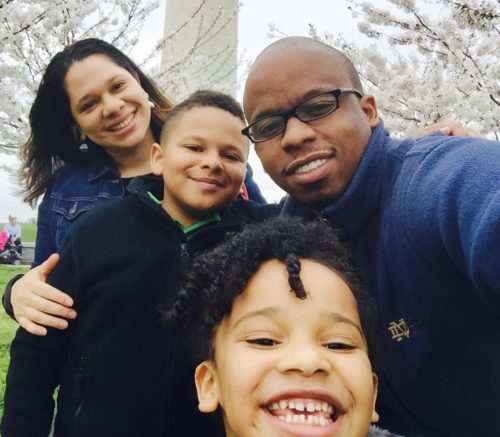 day as a mom. While pregnant, I did even more fervent toilet praying with every twinge, cramp or pink spot. But we made it and I gave birth to my first child in 2005. I now am a mother of two.
day as a mom. While pregnant, I did even more fervent toilet praying with every twinge, cramp or pink spot. But we made it and I gave birth to my first child in 2005. I now am a mother of two.
If I could go back in time, I would tell my heart-sick self to ignore the lie of shame and acknowledge that there are few better ways to guarantee an unhappy life than rejecting contentment, living like someone owes you something. God doesn't. In fact I owe Him more than I will ever be able to repay just for waking me up in my (mostly) right mind today. It has not been easy, but today I honor my losses and rejoice in the knowledge that I have been given exactly the full and beautiful life God intended for me to live.
I’ve come to embrace my children, as well as our infertility journey, as a gift.
This bumpy road is a testament to free and unmerited favor. My children, the living and the lost, are reflections of God's grace and their presence reminds me that their lives, like my own, belong to Him.
Lara is a technology law practitioner and aspiring retiree. She lives in the DC Metro area with her husband and two children who share her love of baking, naps, and old school cartoons.
*SHARE this blog on Facebook or Twitter this week and be entered to win a free copy of Birthed! Tag me on Facebook or Twitter when you post.
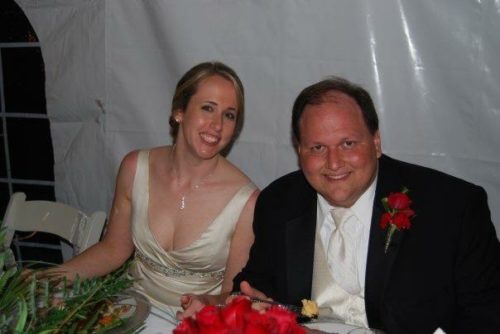 Today marks my 9th wedding anniversary.
Today marks my 9th wedding anniversary.
Eight of those years Kevin and I have struggled with infertility.
I'm in awe that our marriage survived, even more in awe that it's thriving today.
I say this because like my fellow infertile couples know all too well-- there's a harsh push and pull that comes with the inability to have kids when you want to have kids. And when a season of infertility keeps going and going without end, it can be one of those life events that can lead you to end it all.
For in infertility, there's the leaning toward, "Is it your fault or mine?" And layers of hurt that fester below the surface . . .
There's the question of "Will you still love me if I can't give you what you want?" And there's the renegotiating of your relationship as potentially a childless couple . . .
And there's the devastation of hearing a doctor say again, "You aren't pregnant again." And figuring out how to go on living with a drained bank account and a heart full of a lot less hope. . .
These marriage moments are like sharp daggers to even the most committed couples.
They were for us.
Though we started out with all the best of intentions on October 27, 2007 -- with promises made to one another and to God in front of all our family and friends and with shared faith to anchor us -- we still fell. We fell hard to the sentence of infertility.
(I'll spare you the raw details in this blog post. But if you want to read them, check out my memoir which is soon to be released, Birthed)
But we didn't break our vows because even on the darkest nights (really the darkest nights) we fought for each other. We surrounded ourselves with a community of people who taught us how to fight for each other.
And we never said, "If we get through this . . . " we always said, "When we get through this. . ."
I believe that no marriage is perfect. All marriages go through rocky patches where you might love each other, but you don't like being around each other. And all marriages experience huge speed bumps (like infertility was for us) that cause a re-evaluation of everything that you counted on as gospel.
But if you're willing to stick through it -- even when it's not easy, marriage can be such a gift to your life. It has been for Kevin and me.
I don't want to be one of those people who glosses over hard times with a fairy dusted paintbrush saying, "Oh, wasn't that wonderful? What doesn't kill you makes you stronger."
Because hear me say loud and clear -- infertility sucks!
But, I can tell you that like any difficult season, Kevin and I are a more deeply committed husband and wife because of infertility. We're more attuned parents to our daughter because of infertility. We've got a bigger vision of the children around the world that God wants us to parent because of infertility.
Infertility has given our marriage and home life something special that we could have gotten from no other experience.
I'm so grateful to be on this journey with you, Kevin Hagan. You are one amazing man. Cheers to nine years and more to come! I'm so glad to be your wife.
 In my childhood church, when we prayed, we always prayed to our “Heavenly Father” and we called God “He.”
In my childhood church, when we prayed, we always prayed to our “Heavenly Father” and we called God “He.”
Case closed.
And because this was true, if you really wanted to be seen as extra holy, you’d be sure to capitalize in writing any pronoun reference for God or Jesus as He to show you held high regard for God's divinity.
But when I entered seminary in 2003, I thought I had arrived at the only “proper” or “theologically sound way” to talk about God.
No more "He" and no more "Heavenly Father."
All of this came about thanks to my studies in feminism. After reading and discussing texts new to me like Sue Monk Kidd’s Dance of the Dissent Daughter and taking a class from Professor Mary McClintock Fulkerson on Womanist theology, I’d arrived at an epiphany. No, no. Never again would I pray to God in male dominated language.
And it stuck for awhile. I have to admit I looked down on those who still referred to God as He.
In fact, a couple of years later, I dared to correct my husband’s dinnertime prayer (Gasp!), in which he addressed God as, “Heavenly Father."
I reminded him in what he calls my preacher tone of voice: “If he was going to say Father than he needed to say Mother too.”
I’ve barely since lived such down ("the prayer criticizing incident" as we now refer to it) and it's not one of the shining days of our married life for sure …
This conversation and many more brought me to these questions: "Is this what speaking about God is all about . . . converting people to believe exactly as you do? Being the boss of other people's prayer words?"
For so many of us, faith is altogether personal. Who am I to try to take that away from someone?
Anne Lamott has become famous for saying:
And it’s true, isn’t it? While it is easy to create an agenda that you think is the “proper way” or the “right way” or the most “theologically astute way,” it’s not always the God way.
And as I've journeyed for almost 10 years now as an ordained pastor, what I've found is that the church is FULL of people with completely different experiences of God than me. And they talk about God differently than I do. So though we might see the world differently-- I don't want to be isolated from them. I want to stay in relationship.
Professor Roberta Bondi of Emory University's Divinity School says in her volume, To Pray and to Love this about being open to the Spirit in one another: “the goal of life . . . if you want to live by love is not to live by principles . . . rather relationship.”
So, how do I refer to God now?
Lots of names.
Sometimes even names that may be considered improper.
And if you pray at the dinner table at my house, you can say whatever you want. I promise!
I hope the days of my self-righteous innocence are gone. Though I try to avoid pronouns for God as much as possible. "God" alone is enough in my writing and speaking.
You'll hear no complaints from me if you call God Father. Just think about why. This is all I ask.
Because isn't God really a mystery?
We need all of our experiences to even begin to understand, don't you think?
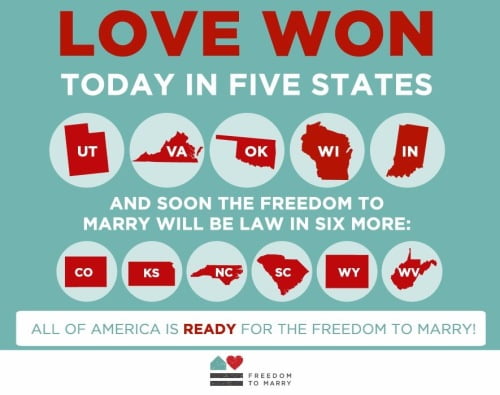 It's been a big couple of weeks in the movement of marriage equality in the United States. These are the times we're living in:
It's been a big couple of weeks in the movement of marriage equality in the United States. These are the times we're living in:
As a person who believes in the right of all people to marry whomever they choose, I'm excited about all of this progress. I want to tell you why.
Not to give you a Biblical exegesis of the issue. (If you want one check out: Matthew Vines or this video documentary that makes me cry every time I watch it). But to tell you my own story.
Growing up in the Southern Baptist Church in Tennessee-- the leadership of the church was ALL about the men.
Men preach.
Men pray.
Men are told to be the spiritual leaders of the home.
Never do you see a woman taking up the offering or being asked to lead the closing prayer or even teaching under the block of the service called "the sermon."
But what happens when you grow up and feel called to do exactly the opposite?
What if people tell you as a teenager, "Well, if you were a young man, I'd tell you to be a preacher."
What if you ARE a leader, a proclaimer, and someone who wants to discern life in conversation with your partner?
What then? I guess there are many different paths but for many it looks like this:
You must leave your "home church" and the approval of the sweet little old women who gave you peppermints from their purse every Sunday.
You must leave your "favorite" status at family gatherings when everybody talks about what they do.
Yet, you learn to sing as clearly as you ever had in your life: "I have decided to follow Jesus. No one goes with me I still will follow. No turning back. No turning back."
While it sounds fun and revolutionary maybe-- from the outside looking it-- to actually do it can be one of the hardest things you ever do in your young adult life.
It was for me.
It takes more courage than you ever thought you had. And most of all, it takes sticking closer to the message of Jesus "to love the Lord with all your heart, with all your soul, with all your mind and love your neighbor as yourself" more than you thought was possible.
But you do it, no matter what. You do it because you know you have to. You chose to save your own soul because in the end, it's all you can really save anyway!
Brene Brown writes this about such a process in her book The Gifts of Imperfection: “Choosing authenticity is not an easy choice. Staying real is one of the most courageous battles that we’ll ever fight.”
So, though I have never voiced, "I am gay" I have had to say: "I am no less than because I am a woman."
In this small way, I know what rejection feels like. I know what Bible verses shoved in your face feels like. I know how costly choosing the real you can be.
But, you know what made it better? Community. New friends and colleagues saying more "You can" vs. "You can't." New denominational homes like this one and this one too. And a seminary that warningly embraces you and your call to preach too.
And in return, I want to include. I want to advocate for voices that get shoved to the margins. I want to also look people in the eye when it comes to marriage and say, "Yes, you can. I will marry you."
So here I stand waving my marriage equality flag for all that is and is to come! Both for the movement of women in leadership in the church and inclusion of all our gay and lesbian brothers and sisters. We're all God's children after all.
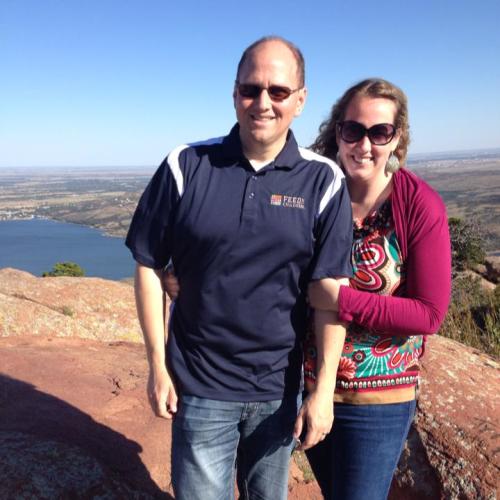 When people observe your life from afar, it's real easy to make assumptions. Social media helps us with this. We don't actually have to "know" people in real life to be Facebook friends or to have a Twitter relationship. And we can all comment . . . on everything.
When people observe your life from afar, it's real easy to make assumptions. Social media helps us with this. We don't actually have to "know" people in real life to be Facebook friends or to have a Twitter relationship. And we can all comment . . . on everything.
The culture of "Christmas (brag) letters" used to only happen in December. But, now it happens daily. Just open your browser and you'll find somebody's accomplishments to be jealous of--
What you see in public is not always what you get. We all know this. But we all like believing the lie.
I've experienced this first hand as a pastor, but especially since 2012 when Kevin became the President of Feed the Children.
Since this time, more and more people have followed our work online. They've said nice things about our partnership. They've commented about how natural we look with all the children surrounding us. They've told us how jealous they are that we get to travel so frequently.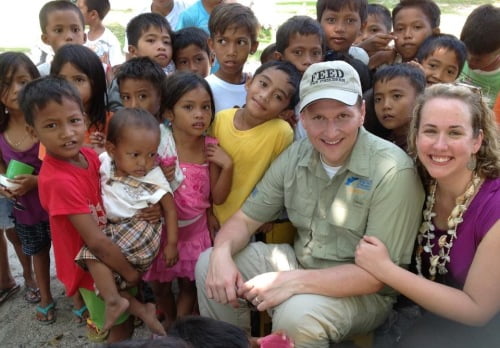
From the outside all has seemed rosey. Yet, this is the nature of leadership, especially in spotlight. Those who are leading you-- you don't know them, the way you do others beside you in the crowd.
And, yes, there are "rosey" things about our lives. We are thankful for the blessings, but . . .
There were days in the past couple of years, when I didn't know who was going to win: Feed the Children or our marriage.
You haven't seen the sleepless nights. You haven't seen the tears. You haven't borne witness to the "Oh my God!" moments where we couldn't bear to speak to one another a single word.
But as Kevin and I kept fighting for us and remembering to look one another in the eye with affection, the blinding light in this crazy public spotlight got easier to bear. We spoke aloud where our marriage began and Feed the Children ended. We negotiated everything, one moment at a time.
And step by step, we've found our way.
So, as Kevin and I approach our 7th wedding anniversary on October 27th, I am in a celebratory mood for all that has been, all that we've figured out together, and all that we've fought for. (I'm so glad we'll find ourselves together in the same state to mark the occasion).
Most of all, I'm proud of us.
Our union is by no means perfect, but it's solid. It's got a great foundation that has carried us through the dark times.
I admire and respect Kevin. He's the only person I'd willingly wonder aimlessly through the grocery store with (note: I hate wandering aimlessly through anything). I find his presence in my life to be so comforting when I run into something in a parking lot coming home with yet another dent in the car (he never yells at me). For there's no one who can talk me off a ledge like he can. There's nobody I'd rather ask after church today: "What did you think of my sermon?" And I believe in his own words, he'd say the same thing about me.
And for better or worse, our shared calling is to Feed the Children right now. But more than this, our partnership is about something greater and it comes from God.
Happy anniversary, Kevin! I love you. And you're looking younger all the time!
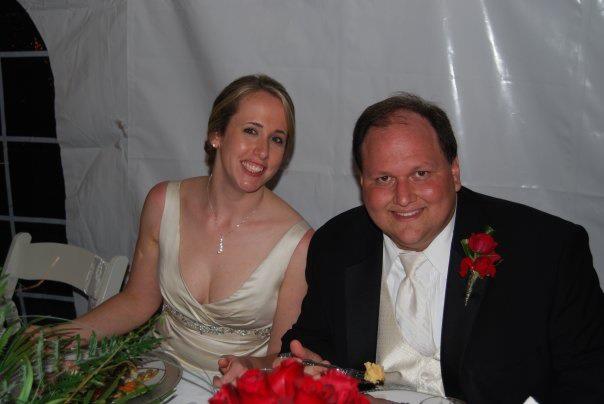
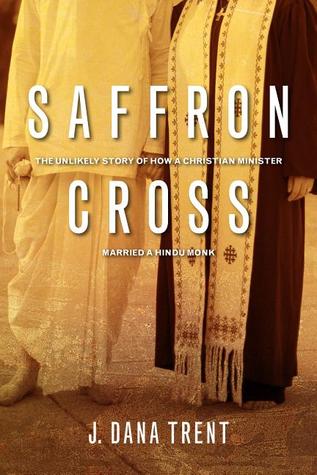 Next week, a dear friend from seminary is hitting an amazing life milestone. J. Dana Trent's first book: Saffron Cross will be released.
Next week, a dear friend from seminary is hitting an amazing life milestone. J. Dana Trent's first book: Saffron Cross will be released.
And I think you should read it. Not just because I know and like Dana as a person, but because I've read it and know you'll love it too.
Saffron Cross is a breath of fresh air to the conversation not only about interfaith marriage but what it means to live in an interfaith society.
With careful attention to not only her experience of Christianity but the Hinduism of her husband, Dana provides a grace-filled memoir of what it looks like to embrace the faith of another not only when it is sexy but also when it is not.
In a culture where it is assumed that 1+1 faith = no faith at all, Dana provides a vivid portrayal of how she and her husband, Fred are forging a new path-- a path rich in mutual learning, compromise, but most of all love for one another's faith experiences.
As you read Saffron Cross not only will you grow alongside the author both in the foundational principles of Christianity and Hinduism-- which Dana Trent does a great job of describing-- but of what deepening a spiritual life looks like in a modern paradigm.
We learn from Dana that just because you are ordained in a tradition, it doesn't mean its faith has yet seeped its way into you.
We learn from Fred that just because you leave a faith tradition for another (as he did with Christianity for Hinduism) it doesn't mean that there is not still much to learn from your roots.
This is a memoir not just for those already involved in interfaith relationships or ministries, but all of us who want to understand how to grow in faith alongside all our neighbors. Because, as Saffron Cross shows us, we are indeed more alike than we are different in our desire for God-- we just have to do the work to see it for ourselves.
In a world where violence occurs over religious affiliation all the time (as happened just last week in Kenya and Pakistan), we need more stories like the ones that the Trent/ Eaker household so willingly shares.
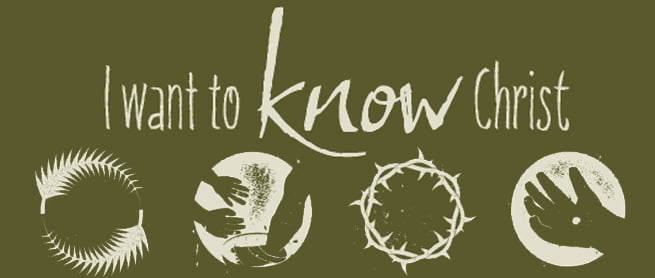 I Want to Know Christ
I Want to Know Christ
Philippians 3:7-11
Preached: August 11, 2013, Martin Luther King Christian Church, Reston, VA
I always knew when I was younger that one day I’d want to be married. I would want to have a life partner—someone in whom I could share in all of life’s most memorable moments with and one day grow old beside.
By my teenaged years, I had expectations on how this might happen—mostly coming from the stories I’d heard from how my parents met.
From the time that I was small, when my sister and I would ask my mom about how she met my dad, she’d tell us about the day that she stood in registration line on her first day at Belmont University in Nashville, TN. As she waited her turn to sign up for her classes, her last name was Duncan and my father to-be was Evans, so naturally they found themselves in the same line—the D-E’s. And there they struck up a conversation and the beginnings of a friendship that led to a marriage began.
So, I too thought if I wanted to get married, all I’d have to do was go to college. And there on the first week would I meet the man who would make me his Mrs.
I’d arrive at college and bam! I’d walk on campus and say “Hello fine young men!” And, he’d be there.
Well— you can imagine how great this “bright” plan of mine worked out!
I was shy at the time and really didn’t like going out of my comfort zone of who invited me to tag along with them. I saturated myself in an all-girlfriend kind of community—eating, studying and going to the movies with girlfriends, not boys. I guess it kept me out of trouble, but that was about it.
Even still, I thought without any work, effort or sacrifice Mr. Right would make himself known to me: the man I most wanted to know and marry one day. In my head, I imagined he’d just knock on my door one day, introduce himself, we’d date and then we could just get on with our really happy lives.
Yes, I said I wanted to be in a relationship. But, no, I didn’t try to get to know any new young men.
Well—you know how that went. I didn’t really date anyone for the next four years.
When many of us think of our relationship with Christ, we approach it in a similar way that I did with dating in college. We say that we want to grow.
We say that we want to have a relationship with Christ that is vibrant.
But, we get stuck.
We get stuck in a version of faith that closely models what we were taught in children’s Sunday School back in 2nd grade children’s church.
We get stuck on the faith we observed in our grandparents but never truly made our own.
We get stuck when the most difficult life situations find us—throwing in all our cards and say, “Well, there must not really be a God. Because if there was a God this bad situation would not be happening to me!”
We get stuck even though most all of us understand this basic truth:
To be a Christian is to what? Follow Christ.
But we equate knowing Christ with church membership—showing up regularly on Sundays.
We equate knowing Christ with having hope of eternal life—resting on the fact that we know where we’ll go one day when we die.
We equate knowing Christ with doing unto others as we would have it done unto us—being a good person because that is how Jesus showed us to live when he was on earth.
And, while all of this is well and good and there’s noting wrong with any of these things, faith of that depends only on these sort of things becomes a sideline only type of faith. Yes, we say with our lips that we are a Christian but there’s no movement in our lives toward the direction of who Jesus actually was.
We say we are following Jesus but our life looks nothing like His did.
The apostle Paul has a few words to share with us about this found in his letter to the Philippian church. It’s a book of Paul clearly laying his feelings about how much this congregation meant to him and what he wanted Christ to be in his life.
It’s a book that Paul wrote from jail—during what was most likely the end of his life, a time when we was saying the things that he most wanted to say.
In fact, scholars feel that the book of Philippians is in fact that the book the one they are most sure that Paul wrote by hand. Put simply, Philippians is Paul’s heart put to paper.
And within this context we hear the Apostle Paul say, “But whatever was to my profit, I now consider loss for the sake of Christ.” And then he goes on to say in verse 10: “I want to know Christ and the power of his resurrection and the fellowship of sharing in his suffering, becoming like him in his death.”
These are familiar words. If we’ve been around church awhile, we’ve heard them a lot. We may just gloss over them with our ears thinking we understand already what they mean. Following Jesus is about death and resurrection . . . Ok, preacher, I’ve got that.
But pause with me for a moment.
Paul is elevating the supremacy of Christ by saying “whatever was to his profit (as we know from his life story that he used to be a very righteous law-abiding Jew), he now considers loss for the sake of Christ.”
But not only this, Paul says that he wants to know Christ in two particular ways.
The first is that he wants to know the power of Christ’s resurrection. And the second, is that Paul wants the fellowship of sharing in his suffering.
(Have congregation REPEAT).
Do you hear what we just said?
Paul says to know Christ is not what most of us think knowing Christ is about.
I heard nothing about joining a church. I heard nothing about having correct theology. I heard nothing about reading the Bible and praying so many hours a week. Or any sort of easy or straight forward task that any of us could just snap our fingers and achieve.
Paul says, “I want to know the power of Christ’s resurrection” and “ I want the fellowship of sharing in Christ’s sufferings.”
I’ve been struck by the simplicity and the profound nature of these two qualifiers over the past couple of weeks.
Paul tells us it is only about two things: resurrection and suffering. But, these aren’t small things . . .
Let’s start with resurrection. Resurrection is the word that most of us associate with the Easter season, isn’t it?
On Easter Sunday morning we sing, “Christ the Lord is Risen Today” and “Up from the Grave He Arose” and we talk about how almost and amazing it is that Christ defeated the powers of sin and death and so we too can live forever more. It’s a happy day isn’t it? Full of bright flower dresses and new hats and lots of joy . . .
So following Jesus about resurrection—that might sound easy enough, right? We just have to show up in our Sunday best! Huh? Wrong!
Do we not remember all the stories that followed that bright Easter morning?
The stories of the men afraid in their scandals hiding in the upper room not believing the news that the women brought them about the empty tomb.
The stories of women like Mary finding Jesus in the garden outside the tomb holding so tightly on to Jesus that Jesus had to reprimand her saying: “Don’t cling to me.”
The stories of the disciples like Peter, filled with shame and grief having to have a conversation over and over again with Jesus about what he needed to do going forward at the seashore.
Resurrection is not about instant beauty or perfect circumstances. Resurrection is a process. Resurrection is a slow transformative process.
And while yes, resurrection is about new life and hope; its birth is not an easy process. Resurrection rattles of the foundations of what is normal, what is comfortable and most certainly what we might have expected before it comes.
It’s the power that dismantles every other power in our life that controls us, keeps us in bondage, or has any pull at all over our lives.
To want to know Christ and the power of his resurrection is much like a story that author Annie Dillard tells.
When speaking of the resurrection power of our Lord, she gives this advice:
“It is madness [for} ladies’ [to wear] straw hats and velvet hats to church; we should all be wearing crash helmets. [Instead of passing out bulletins,] Ushers should issue life preservers and signal flares; they should lash us to our pews.”
To say that you want to know Christ is to be ready for resurrection power to shake your life upside down.
And in the same way, Paul also says that he wants to share in the fellowship of his Christ’s sufferings. To know Christ is to know Christ’s sufferings.
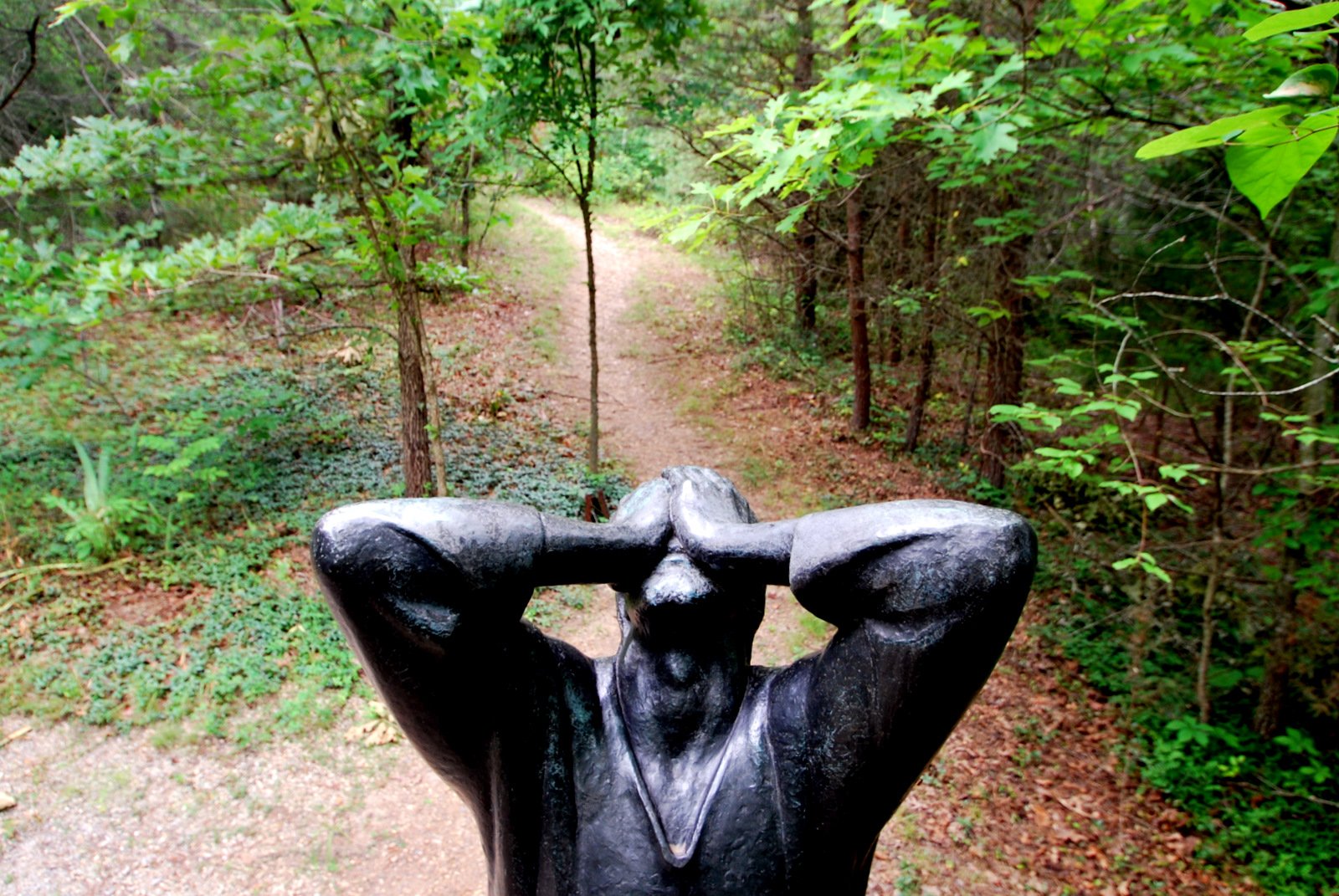 Sufferings . . . if you are like me, it’s never good when a sentence starts with this word is it? I hate suffering, what about you?
Sufferings . . . if you are like me, it’s never good when a sentence starts with this word is it? I hate suffering, what about you?
Suffering involves change not only in the way that resurrection is about change, but it is about pain and how pain changes us. Blood, sweat and tears as the saying goes. . . .
To know Christ, Paul says, we have to be ready to suffer.
To follow Christ is not to sign up for a ticket to life happiness (as some tv preachers—you know who they are might tell you) but it is to accept that in life, no matter how good we think we are, difficult situations are going to find us.
And in fact, the particular the MORE we begin to align our lives in the direction of Christ’s teachings, then the more we are going to get push back from the world.
It is as if Paul is saying, start following Christ and then get ready, because pain is going to come!
It’s going to be pain you or I didn’t ask for, didn’t make happen, or even is not the fault of our poor choices.
May I just take liberty to say that following Jesus sometimes means somebody is going to tell lies about us, somebody whom we love might leave us, or maybe even one day we are going to wake up and realize that our life has to take a completely different life path with some really hard choices.
And it’s going to hurt!
Even more so, people might just steal our clothes, spit on us, speak all kinds of ill against us, and our stands for Jesus might even cost us our very lives. If it happened to Jesus, then why do we think it won’t happen to us?
Suffering is just part of the commitment.
I ask you church, do you still want to know Christ?
I began my sermon with this morning telling you that as a child I dreamed of getting married one day.
Well when I was in seminary, God answer such a prayer and brought into my life an amazing life partner named Kevin Hagan who would be God’s instrument of love, challenge and encouragement to me for all that lied ahead.
And all was well and great and all—you know things were going fine. A year and a half ago, Kevin was working on the leadership team of a non-profit in Alexandria and I was happy over there at Washington Plaza—until Kevin got a call one day that would lead to another call and then a visit and then another visit where he would be named the President of Feed The Children that just so happened to be in Oklahoma.
And you can imagine as excited as I was for this opportunity for Kevin, how I felt about that—Oklahoma.
I told Kevin, “They don’t like my kind of outspoken female pastor-ness out there.” His optimist self said, “Give it a try.”
And now after I’ve been out there part-time for 6 months I can say indeed my assumptions were right. They don’t like my kind. And Oklahoma is a 22 hour drive away from here. It can feel very lonely. And there have been many tears in our household as much as there have been celebratory moments of all the new experiences.
We have to be careful what we pray for.
Sometimes God’s biggest blessings to us can also come with pain. Sometimes God’s biggest blessings can involve resurrection that forces our world-view upside down.
And it is a process.
Notice with me that Paul said, “I want to know Christ.”
NOT, “I know Christ” or “I know Christ already.”
Paul is exhorting us by example to A PROCESS of knowing the power of the resurrection and the fellowship of sharing in his sufferings.
Even for Paul it was never something he achieved or arrived at, it was about a relationship of wanting to know Christ more every day.
The last time I did a class preparing persons for baptism. I started the session by asking them if they were ready to die? “Have you lost your mind, Pastor?” their eyes said back to me in response.
And no, it wasn’t some sort of “hell fire and brimstone” are you sure you are saved sort of line of questioning. And no I had not lost my mind. I was serious. Were they ready to die?
Because as baptized believers who are desiring to know Christ, what we believe being immersed under the water and then coming back up symbolize the fact that we are dying to ourselves and being raised to a new kind of life.
The Christian life—at least as the Apostle Paul saw it was about death to our normal human experience. It was about the power of resurrection and sharing in the fellowship of Christ’s sufferings.
So I ask you church today, do you want to know Christ?
Do you want to walk in Jesus’ footsteps?
If you answer is yes, then I say, hold on for the ride of your life—for it will be a journey filled with the power of the resurrection AND the fellowship of sharing in Christ’s sufferings.
For those who commit afresh today to this way of dying to self and living for Christ, let the church say (AMEN).
 Today marks the one year anniversary of our family's involvement with the non-profit giant, Feed The Children. More than just a job for Kevin, it has been a calling to a way of life.
Today marks the one year anniversary of our family's involvement with the non-profit giant, Feed The Children. More than just a job for Kevin, it has been a calling to a way of life.
I've thought a lot about the fact that I would write this blog today. That today I would mark this passing of time as significant in our lives. That today I would say something nice about my husband. That today I would highlight some of the great work that this organization does on the ground to feed hungry children every day.
But, somehow none of these lead ins seems appropriate.
How to do you talk about the meteor hitting the foundation of everything we know kind of year?
How do you talk about being transported to a world you'd never thought you'd be in?
How do you talk about living a life suddenly that few of your friends understand?
How do you talk about the fact that faces of children from all over the world filled your Christmas Card photos?
Or the fact that when your mother calls her first question is, "What state (or country) are you in today?"
It has been a year!
It's been a year that has landed us with necessary dwellings two different cities.
It's been a year that has taken us to five different countries in the developing world for field visits.
It's been a year that led me to leave the traditional career I had for something on the edge of undefined.
It's been a year that has led us to some of the most exciting possibilities for our future than we could have ever imagined, truly.
It's been a year of much hurt, unsettling findings but then hope in the rubble too.
It's been a year that has re-made my husband's mission for his life with clearer vision than he's ever known.
It's been a year for me to seek out new mentors, as the role of being "Kevin's wife" in an organization like this has felt often times like entering a foreign land for my independent sentimentality self.
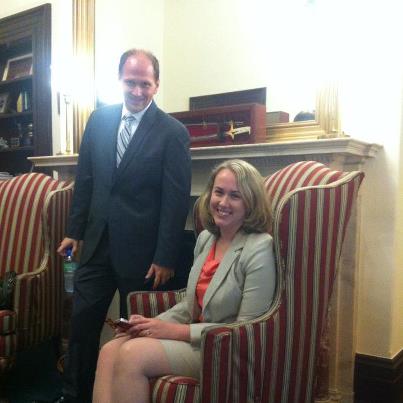 It's been a year that has called both of us to hold tight to the foundations of our own sense of vocational callings and marriage covenant-- "Yes, wherever you go, I will go."
It's been a year that has called both of us to hold tight to the foundations of our own sense of vocational callings and marriage covenant-- "Yes, wherever you go, I will go."
It's been a year that has united our faces, cheek to cheek with some of the most precious children of this world-- who long most of all for someone just to see them. And we have.
It has been a year.
It's hard not to speak of how proud I am of my husband. Or of how proud I am of us-- Elizabeth and Kevin together-- two who keep fighting for the best for "us" in the midst of the best for "them." Or, how proud I am of myself for not taking cues from what certain folks want me to be, instead, listening to the voice I already have.
Oh, if the walls could talk you'd know that it has been quite a year, a really big year in the life of team Hagan on the Feed The Children train. But, it's a train we don't sit stopping in the direction of progress anytime soon. Together.
Yesterday, the Associated Baptist Press published a commentary I wrote called, "I Left the Church. But Don't Hate Me." You can read it here.
In this piece, I described that one of the reasons I left my pastorate stemmed from a new professional opportunity given to my husband at Feed The Children. It's something I've blogged about a lot in the past. You can read one such post here.
So, you might wonder how? How do you merge your vocational identity with that of your business oriented husband? How do you support him and this ministry when you aren't employed by this organization? How do you make it work?
Well, the answers to these questions are an ongoing conversation in our household. We aren't quite sure.
Never do I want to be unhelpful or in the way of Kevin's work. But never do I want to shrink down from the opportunity this position has given our family to be a voice of the voiceless, to be a hospitable presence to those in whom have been given to us to care for. Kevin and I have different leadership styles, but styles in which I think push us both to think about situations in ways we'd never would. And, at the end of the day, I know we're each other's biggest fans. I want to love Feed The Children because Kevin loves it and want to do whatever I can to further it mission under his leadership tenure.
So in the meantime of trial and error of what works and what doesn't-- this is what the calling looks like for now.
In the summer and the fall, I traveled both to Africa and the Philippines to learn about and encourage the field work overseas. I wanted to see the field for myself, bringing stories back so that I could better tell the Feed The Children story to all of you who might just be moved to lend a helping hand as well. I want to go on other such trips in the future.
Several weeks ago, I planned and led a Valentine's Party for the entire staff which including a letter writing activity for the staff-- sending love notes to all of the orphans in Feed The Children's care around the world. I made heart-shaped cookies on a stick for the 260+ Oklahoma based employees. I created this event (which now folks I think are expecting every year) to encourage this hard-working staff, letting them know how much they are appreciated especially by us.
And just last week, I made a point to spend as much time as I could with the country directors in to the Oklahoma City office who traveled to Middle America for a week of training. I wanted to honor them as they've honored us during our visits to their countries.
I wish there were some roadmap or even guidebook for this calling. Because I'm often walking in territory new and uncharted (doing and being place I'd never thought I'd be), but in the meantime I'm thankful for the grace to learn a little more about myself in the process every day. And to know that Kevin and I are in this journey together.

The following passage from Ruth chapter one was read at our wedding. And though I got slack from some of my preacher friends with the highest regard for lectionary readings appropriate for wedding (saying that this was not a passage about a marriage, rather a friendship between two women), I stuck with my strong desire to have it read. It seemed to me in planning the service (Kevin planned the party) the only way to truly articulate what I thought marriage was all about was this passage:
Then Naomi said to her two daughters-in-law, “Go back, each of you, to your mother’s home. May the Lord show you kindness, as you have shown kindness to your dead husbands and to me. . . . But Naomi said, “Return home, my daughters. Why would you come with me? Am I going to have any more sons, who could become your husbands? 12 Return home, my daughters; I am too old to have another husband. Even if I thought there was still hope for me—even if I had a husband tonight and then gave birth to sons— 13 would you wait until they grew up?Would you remain unmarried for them? No, my daughters. It is more bitter for me than for you, because the Lord’s hand has turned against me!” 14 At this they wept aloud again. Then Orpah kissed her mother-in-law goodbye,but Ruth clung to her.15 “Look,” said Naomi, “your sister-in-lawis going back to her people and her gods.Go back with her.” 16 But Ruth replied, “Don’t urge me to leave you or to turn back from you. Where you go I will go, and where you stay I will stay. Your people will be my people and your God my God. 17 Where you die I will die, and there I will be buried. May the Lord deal with me, be it ever so severely, if even death separates you and me.” 18 When Naomi realized that Ruth was determined to go with her, she stopped urging her.
Now, almost five years later, I feel this passage is as important to my life than any other text. It's a story I keep coming back to find grounding for all of the transition around me. For in the past couple of months, I've been asking myself:"What does it really mean to be married?" over and over again. And I feel like as I am learning to answer, I'm simultaneously saying to Kevin my wedding vows again for the first time. Wherever you go Kevin I will go. I will support and love you no matter what.
As many of you know, earlier in this month, Kevin accepted a position as CEO/ President of Feed the Children-- a very exciting vocational and ministry opportunity for him. But, it has been a change in careers which required him to primarily work in another state, Oklahoma (at least for a time). As one of my colleagues recently pointed out, the commute to OK is not one as if he just got a job in Richmond or Raleigh. No, it is a little bigger deal than that. In order for us to connect, it usually takes a full day of travel or one 3 hours and expensive non-stop plane adventure. Because for now, I am remaining at the church as pastor and maintaining our home in DC and thankful for Washington Plaza's flexibility for me to commute to see Kevin when he can't come home to see me. Though I know we are not alone in the "commuter marriage," we hate the separation and can only seem to make it 2 weeks before we need to see each other face to face.
But, there is something larger at work in all of this. What is marriage? What does it mean when your spouse is given a once in a lifetime opportunity in another state in a place where you know no one? Do you continue to go your own path as if nothing has changed? Or, do you seek to uncover the jewels that such an experience might offer you-- even as the supportive partner?
The process of discernment that has taken root in me over the last couple of months has been one where I've been reminded at every juncture that I said to Kevin on a sunny day in October in 2007 that "wherever he goes I will go." And so now we are here. We are here at the hard place of discernment. We are here at the place when the words on the page go from a beautiful reading for a wedding ceremony to real life. I am here seeking to figure out what supporting Kevin and our marriage AND not loosing my own identity and calling looks like.
But for now this is what I know:
1. God wants our marriage to be strong. God did not call Kevin to lead Feed the Children and say, "Ok now is the time to screw Elizabeth." No, as much as God provided and led Kevin into this new calling for his life, God is equally going to do the same for me. I'm just waiting to see how the pieces of the puzzle shake out.
2. Communication, communication, communication. How often it is that expectations and important feelings aren't expressed (especially when you live in different places) that cause trouble that neither partner meant toward the other. If you are serious about marriage, I've found I've got to make time for talking, talking and more talking to my partner-- as much time as I would any of the other basic necessities in my life. And, "I'm sorry" is never a bad phrase to begin with either . . .
3. Marriages are meant to bless others. Kevin and I are a strong team of support for each other (which is why we got married in the first place!). As we find ways to move forward TOGETHER in all that is ahead, the result is not just about our own sanity or happiness (though these things are good). Rather, if Kevin and I stick together in all of this, the result will be more blessings for those around us. More hospitality for those without it . More friendship for those who need it. More clarity of mission and calling as to why we all are alive.
Though our life journeys have taken an unexpected turn this year, I'm so happy to be on this adventure with Kevin. The best is just yet to be . . . I hope!
We're still on this discernment journey of the logistics-- so if you are the praying kind, I'd appreciate any support in this way as the story goes on. I'll keep you posted.
How hard it is for us strong, "can do anything types" to not be afraid of love! Love given and acknowledged always holds a level of vulnerability that sometimes we simply aren't willing to show. But, that our souls truly need.
This week has been a happy one around our house in particular. In October, there is the week of Kevin as less than a week separates Kevin's birthday from our dating and wedding anniversary. And in February, we celebrate the week of Elizabeth as a week separates Valentine's Day and my birthday. These celebration weeks became an intentional decision between the two of us when we planned our wedding date (and also the farmer's almanac said it wasn't going to rain the town of our outdoor wedding, so we went with a October date-- important too ) . In these two special weeks, we've thought of ways to remember and enjoy life together such as mornings of breakfast in bed or dinners cooked at home (all you city busy folks know what I mean when I add this on the list of a special treat) or sometimes a overnight get-a-way.
In this being "my week" including a special trip together last week (a writing retreat for me), dinner out last night and my super surprise gift this morning: an IPad this morning, I've felt the love. And, I'm grateful. How did I find myself with so many amazing people in my life?
 Sometimes, though, we want tangible expressions of love, but we also don't know what to do with them when they arrive. I remember a fabulous birthday several years ago when I was literally on cloud 9 from all the gestures of support around me and felt paralyzed all at the same time. I think if I got one more birthday card, that year, I would have exploded. And, I know I am not the only one who has been in this place of bewilderment.
Sometimes, though, we want tangible expressions of love, but we also don't know what to do with them when they arrive. I remember a fabulous birthday several years ago when I was literally on cloud 9 from all the gestures of support around me and felt paralyzed all at the same time. I think if I got one more birthday card, that year, I would have exploded. And, I know I am not the only one who has been in this place of bewilderment.
When lovely people do lovely things, it is easy to be stopped in our tracks and just not know how to respond. Sometimes we shut down, in the pain of the joy. For, we don't have the room in our hearts to take it in. The act of stretching our hearts to open to others can feel as painful as a long work out at the gym. When our souls have never felt loved in our deepest caves, sometimes love's arrival can actually sting a little. In fact, being loved, just as we are, by others can often be one of the scariest emotions in life.
While watching an Oscar special this week featuring the wonderful actress, Viola Davis, it struck me how authentically she described her own struggles with receiving love. Watch a portion of this interview here. Saying, how much of a radical transformation love became in her as she began to trust the man for the first time who would become her husband. Something as simple as allowing him to drive her somewhere became a symbol of abiding love-- love that was without fear.
I John 4 talks about love's relationship with fear in this way:
16 So we have known and believe the love that God has for us. God is love, and those who abide in love abide in God, and God abides in them. . . . 18 There is no fear in love, but perfect love casts out fear; for fear has to do with punishment, and whoever fears has not reached perfection in love
This is what I am learning about love-- there is no fear in love when it begins to truly seep into our hearts. But, such a fearless stance requires practice and people who are willing to stay in your life long enough that you actually believe them when they say to you, "I love you."
I'm just so amazed that I get this week every year to practice feeling loved and wish the same kind of experience for others too. Everybody has somebody who loves them. Everybody has somebody that they need to tell that they love them. The question on our shoulders, then is: will we love? Or will we be afraid? I want to love.